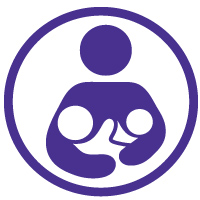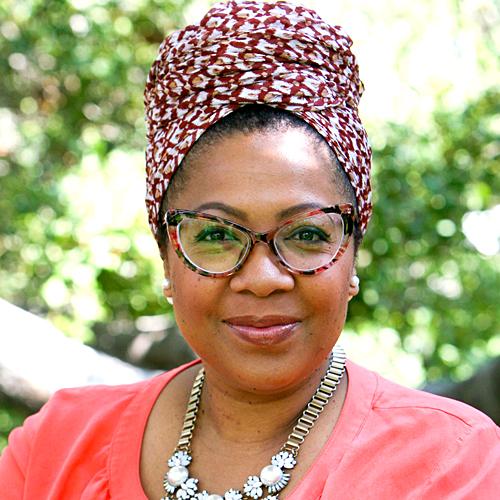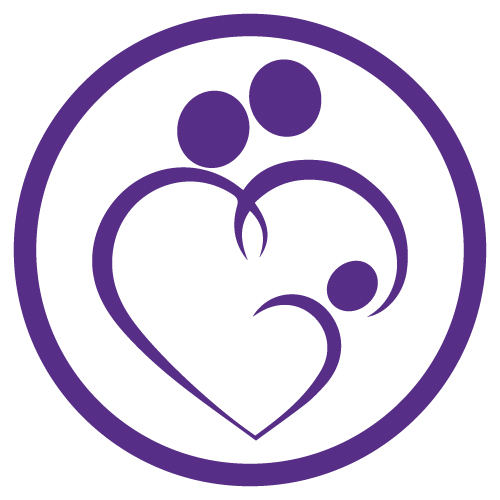 IBCLC Detailed Content Outline: Development and Nutrition Focused CERPs - Section I
IBCLC Detailed Content Outline: Development and Nutrition Focused CERPs - Section I
Access CERPs on Development and Nutrition for the IBCLC Detailed Content Outline recertification requirements. Enjoy convenient on-demand viewing of the latest Development and Nutrition focused IBCLC CERPs at your own pace.


Shondra Mattos is an IBCLC (Internationally Board-certified Lactation Consultant) and owner of a Location-independent lactation practice where she provides breastfeeding and infant feeding support to families countrywide.
Shondra finds the science of lactation fascinating, and as such, she has a passion for sharing her understanding of complex lactation subjects with her colleagues and aspiring lactation students. When she's not with clients, speaking, or teaching, she spends time with her husband and daughter in Fayetteville, NC.
Bryna is a lactation consultant, mentor, educator, and birth doula in the Pacific Northwestern United States. They are active in their community as an advocate for mutual aid, reproductive justice, and reduction in barriers to care. They also own and manage an inclusive private practice. As a member of both Queer and Neurodivergent communities, offering inclusive care on every level is very important to Bryna. Their vision is to offer information and tools to providers to build a community of comprehensive, concordant, and individualized care for all families in the perinatal period.
We propose a talk that outlines the anatomy and physiology of normal infant feeding. Our talk will cover the basic functions of infant muscle groups recruited for latching, sucking, swallowing, and drinking human or artificial milk. We believe that if lactation professionals understand normal physiology as it pertains to muscle groups, they will better be able to educate and help the families our profession serves. At the end of this talk, the lactation professional will be able to establish a baseline for normal muscle function when evaluating the breastfed infant. We will use multiple learning modalities to outline and explain the essentials of muscle function in the breastfed infant.

View Details / Enroll

Back to Birth: The Power of Primitive Reflexes to Rebuild Brain Foundations

Nikki is mum to 3 wonderful boys, one with significant physical disability. Diving deep into the world of disability, child development and neurobiology due to her son's Cerebral Palsy, Nikki learnt to look beyond standard protocols when seeking interventions for her family to find additional knowledge and understanding that can be incorporated with traditional approaches to enhance and personalise therapy and care. This approach ultimately led Nikki to discover the power of primitive reflex integration.
Nikki deeply believes that life and circumstances, no matter how entrenched they seem, can always be improved. She thoroughly enjoys the opportunity to work with families and individuals to realise the individuality of each family member and discover the increased health, development and ease that's achievable.
Nikki began her journey with Rhythmic Movement Training (RMT) in Melbourne in 2013 and was astounded with the positive changes such an easy and small intervention could make. She has since worked with adults and children, using RMT, to integrate retained primitive reflexes and to ease their associated challenges. She particularly enjoys working with children and delights in seeing them actively participate in the sessions and very quickly own and take control of their sessions. The profound improvements and changes they see and feel in their bodies continues to amaze her.
Nikki balances her RMT work with days in the classroom as a relief teacher, relieving across the years from Reception to Year 12. Being in the classroom is always a fascinating and enjoyable time assisting students and watching reflexes at work. Nikki is also fascinated in the transformative power of epigenetics and is a co-developer of ph360's Parenting360 Course.
In her play time, Nikki loves surfing, reading, pilates and running to keep her body feeling alive and moving and to keep life feeling manageable!
The primitive reflex system provides the very first foundational layer of development in the brain. Without reflexive movement to trigger brain development, the brain would not develop at all. As this development progresses, the activity of primitive reflexes in the body diminishes to the point that primitive reflexes are considered “integrated.” However, what happens when this doesn’t happen as designed and primitive reflexes are instead retained? Growing amounts of research are identifying the links between reflex retention and a wide variety of motor, learning, cognitive, physical, emotional and postural challenges.
This presentation examines some of the main primitive reflexes and explores what happens when the primitive reflex process is interrupted.
How is it interrupted? How do these interruptions manifest? And, most importantly, what can be done therapeutically to continue and support the primitive reflex integration process.

Best Practices to Support Breastfeeding in Neonatal Intensive Care

Kathie, an Associate Professor of Pediatrics, University of CT School of Medicine, is a neonatologist, member of the Human Milk Research Center at CT Children’s Medical Center, Hartford, CT, and graduated from Cornell University and Cornell University School of Medicine, completing postgraduate training in Pediatrics, Pediatric Nephrology and Neonatology at Children’s National Medical Center, George Washington University, Washington DC USA. In the inaugural group of physicians designated “Fellow of the Academy of Breastfeeding Medicine” (FABM), she served twelve years on the ABM Board of Directors, chaired the Protocol committee, and chaired the United States Breastfeeding Committee 2013-14. Elected to the International Lactation Consultant Association Board July 2014-17, she is a member of the American Academy of Pediatrics Section on Breastfeeding, serves as the AAP Connecticut Chapter Breastfeeding Coordinator since 2000, and Chairs the Baby-Friendly USA NICU Initiative. Initially founding Medical Director of the New England Mother's Milk Bank she is currently co-Medical Director of the Mothers' Milk Bank of the Western Great Lakes and has authored many chapters, monographs, peer-reviewed manuscripts, and ABM protocols. Her research centers on breastfeeding and the use of human milk in the NICU, cup feeding, donor milk/donor milk banking, the Baby-Friendly NICU, global maternal-child issues and the education of medical professionals. Lecturing extensively in the United States and abroad, she resides in Glastonbury, CT, her greatest accomplishment her 4 amazing young adults, 19 to 29 years of age.
Topic: The Science and Significance of Human Milk and Breastfeeding in Neonatal Intensive Care - [View Abstract]
There are many challenges faced by mothers, families and staff with the hospitalization of a sick or premature infant that affect lactation and breastfeeding. These include mother-infant separation, initiation and maintenance of lactation by milk expression, compromised milk production, barriers to infant-mother-parent bonding, the need for family-centered care, and the many issues related to continuity of care both during the hospitalization and between facilities and caregivers. We will explore current evidence concerning the support of mothers’ and families’ choice to transition from milk expression to breastfeeding of their infants in intensive care. While our knowledge of the importance of human milk has grown immensely with respect to nutrition, acute and chronic disease risk reduction and prevention, neurodevelopment, physiology, and the intestinal microbiome among others, there remains a gap in the translation of this knowledge into the practice of transition of human milk feeding to breastfeeding in many countries, regions and individual intensive care units/wards. It can be done—we will explore the evidence for how!

Beyond the Basics of Latch: Support Strategies for Helping Babies when the Basics Aren’t Enough

Melissa Cole, MS, IBCLC, RLC is a board certified lactation consultant, neonatal oral-motor assessment professional, and clinical herbalist in private practice. Melissa has been passionate about providing comprehensive, holistic lactation support and improving the level of clinical lactation skills for health professionals. She enjoys teaching, researching and writing about wellness and lactation-related topics. Melissa holds a bachelor of science degree in maternal child health and lactation consulting and her master’s work is in therapeutic, clinical herbalism. Melissa actively conducts research and collaborates with several lactation and health care professional associations. Before pursuing her current path, Melissa’s background was in education and cultural arts, which has served her well in her work as a lactation consultant and healthcare educator. She loves living, working and playing in the beautiful Pacific Northwest with her 3 children.
Topic: Beyond Fenugreek: An Individualized Approach to Dietary and Herbal Galactagogues - [View Abstract]
Topic: Beyond the Basics of Latch: Support Strategies for Helping Babies when the Basics Aren’t Enough - [View Abstract]
Topic: Common Infant Digestive Health Concerns and Useful Support Strategies - [View Abstract]
Topic: Connection and Care: Virtual Support for Tongue-Tied Infants - [View Abstract]
Topic: Feeding is Movement: Activities for Supporting Optimal Infant Oral Function - [View Abstract]
Topic: Infant Gut Health: Common Concerns and Useful Support Strategies - [View Abstract]
Topic: Infant Oral Assessment: Exploring Anatomy and Function Beyond the Frenulum - [View Abstract]
Topic: Low Milk Production Detective Work: Assessment and Care Plan Considerations - [View Abstract]
Topic: Nature’s Nurturers: Plant Medicine for Perinatal Mental Health - [View Abstract]
Topic: New Thoughts on Infant Pre and Post-Frenotomy Care - [View Abstract]
Topic: Placenta Medicine as a Galactogogue: Tradition or Trend? - [View Abstract]
Topic: Thinking Critically About the Use of Clinical Lactation Tools - [View Abstract]
Topic: Will It Hurt? Frenotomy Aftercare Strategies to Optimize Healing Outcomes for the Newborn - [View Abstract]
In a perfect world, every baby would latch beautifully right after delivery and breastfeed happily ever after. In reality what we often see is that most moms and babies need a little help to get breastfeeding off to a good start. Many dyads need a lot of help. And a few mother/baby pairs need a miracle to breastfeed successfully. How can we best help those tough cases? There are many reasons babies struggle to latch and feed well. Some issues may include structural issues, physical discomfort, respiratory concerns, medical issues, digestive issues, poor feeding tool choices, prematurity, etc. Many providers are frustrated when they are unable to help a dyad latch and feed successfully. This presentation will cover some reasons why babies struggle to latch and breastfeed well. We will go over cases that portray challenging situations and the assessment techniques and care plan strategies that helped. This session is designed to help providers implement critical thinking skills in order to think outside the box when it comes to difficult cases.

View Details / Enroll

Beyond the Rooting Reflex: The Role of Primitive Reflexes in Lactation

Gretchen Becker Crabb is an Occupational Therapist, Licensed Professional Counselor, and Endorsed Infant Mental Health Therapist. She is also a Certified Lactation Counselor, La Leche League Leader, and Brazleton Newborn Observation (NBO) trainer.
Gretchen’s passion is rooted in fostering lifelong relationships and connection through co-regulation in pregnancy and beyond. Her unique approach to lactation support and therapy is rooted in culturally attuned sensory, somatic, and trauma-informed mental health techniques.
Gretchen owns and operates a private practice in Madison, Wisconsin. For 21 years, she has provided developmental, trauma, feeding, and attachment support for tiny humans and their caregivers in birth to three, preschool, private practice, and peer group settings. Gretchen is an international speaker, reflective supervisor, and infant mental health consultant. In these roles, she offers compassionate, experiential, and reflective holding spaces for professionals. She is a proud United States Air Force spouse and mother of three boys.
Topic: Infant Mental Health: What Does It Look Like in Practice? - [View Abstract]
Topic: Scent-Sational Connections: The Role of Olfaction in Development - [View Abstract]
Topic: Sensory Processing and Breast/Bodyfeeding: Using Co-Regulation to Support the Feeding Relationship - [View Abstract]
Topic: Vestibular Processing: Using the Sixth Sense to Support Lactation and Parent/Infant Relationships - [View Abstract]
Primitive reflexes play an instrumental role in the birth process and lactation, motor, regulatory, and social emotional skill development. Reflexes not only serve to help us develop a sense of self, but they also assist to promote meaningful interactions with other people and the world around us. In this presentation, we explore how the integration of sensory processing and primitive reflexes support parents and infants in lactation. We will also look at how the function of these reflexes can impact learning, mental health and regulation skills in infants, children, and adults. Experiential activities will be used to enhance participants understanding of each reflex and experiment with supportive strategies to use with families.

View Details / Enroll


Dr. Rice has been working at the intersection of education and health for social justice and public good. She is the former Executive Director of the Breastfeeding Coalition of Oregon. Currently, Dr. Rice works on organizational development, communication, marketing, public policy and community engagement to advance health equity through access to donor human milk. A national thought leader, she is deeply engaged in convening conversations about the importance of maintaining women’s biological integrity, advancing feminist approaches to human milk banking and at the same time, encouraging capacity building for human milk derived therapies improving health outcomes for the most vulnerable babies.
Most recently Dr. Rice provided consulting as a Policy Associate with Mothers' Milk Bank of San Jose and has provided strategy and policy consulting for the Human Milk Banking Association of North America (HMBANA). Marion holds a doctorate in Education Leadership and is an Internationally Board Certified Lactation Consultant, IBCLC.
This session will look at how for profit corporations are seeking to aggregate, control and exploit human milk. In the absence of federal health policy and consumer regulation/protection, companies are emerging seeking to build commercial markets for human milk often under the guise of improving the economic status of women and infant health.
We will examine companies currently paying for milk both domestically and internationally and the implications for women and emerging policy both at the federal and state level.
Entities setting a price for human milk in the absence of supportive public policy may in fact undermine women’s biological integrity, infant health and contribute to the vulnerability of women and babies.
I will ask participants to consider the issues and to support models of community engagement and decision making that are women centered and women led that keep this biologically critical substance within the community from where it comes; supporting breastfeeding and benefiting women and babies.
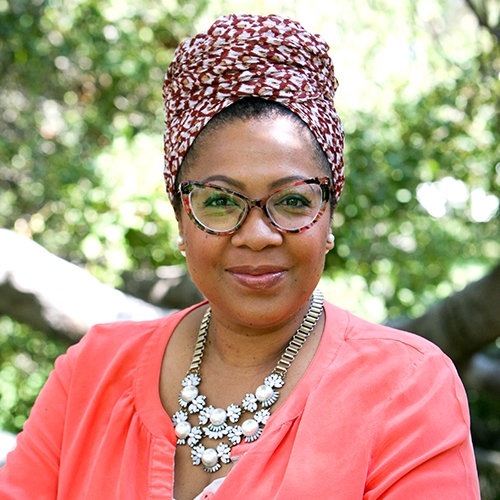

Nekisha Killings is an equity strategist, internationally board-certified lactation consultant, and maternal and child health advocate who speaks, teaches, and facilitates on topics related to equity and dismantling bias across various sectors.
When she is not home educating 4 future world changers, she acts as a Director of Equity, Inclusion and Belonging at Lactation Education Resources and consults organizations on creating and implementing strategies to better support marginalized communities.
Nekisha holds a Masters in Public Health and penned the chapter titled Cultural Humility in the latest Core Curriculum for Interdisciplinary Lactation Support text. Nekisha is on a mission to normalize brown breasts and nipples in health education, thereby better equipping healthcare providers to accurately assess and treat people of color.
Nekisha's work is rooted in a compassion and candor that could only have been cultivated in years of supporting new parents during their first days of parenthood. Nekisha is an active duty military spouse who has been awarded the Spouse of the Year designation for her volunteer efforts supporting families.
Topic: Breast Assessment and Non-White Skin Tones - [View Abstract]
Topic: BreastSide Manner: A Patient-Centered Approach to Lactation Support - [View Abstract]
Topic: Marching Orders: Developing Practical and Impactful Care Plans - [View Abstract]
Is a red spot always a key indicator of mastitis? What about the deep purple trademark of vasospasm? How does eczema present on non-white skin? Performing a standard breast assessment may cause clinicians to overlook or misidentify key indicators of maladies in patients that are not fair skinned. Learn how you can improve your assessments and familiarize yourself with other ways to identify common conditions in patients populations that may not have been featured in your textbooks.


Briana Tillman received her undergraduate degree in International Relations from the United States Military Academy at West Point. She has been a La Leche League Leader for 9 years and is a board certified lactation consultant. After spending 10 years as a stay-at-home mom, she is currently attending medical school at Rocky Vista University College of Osteopathic Medicine in Parker, Colorado. She loves spending time with her husband and three elementary-school-aged children—as a family they like to play board games, go camping, and play bluegrass and chamber music.
Topic: Breast Milk and the Microbiome - [View Abstract]
Recently, much scientific inquiry has turned to the new frontier of the “microbiome", the many microscopic beings living commensally or symbiotically in and upon the human body. Breast milk’s contribution to the development and sustenance of healthy gut bacteria is immense, in that it not only provides bacteria for the initial seeding, but also contains an ideal nutrient base designed to promote beneficial flora while simultaneously discouraging pathogens. This presentation will explore the relevant theories and understanding of these processes.
We will delve into the long-term health outcomes associated with the microbiome, including obesity, diabetes, brown-to-white fat ratio, gastrointestinal concerns, and allergies. This presentation will also explore the impact of breast milk storage and pasteurization techniques on its microbiologic activity. Additionally, we will look at other aspects of the microbiome as they relate to skin-to-skin contact, vaginal birth and breastfeeding.
Finally, we will describe bacterial roles in infant neurological development, allergies, digestion, immunity, and future obesity. Healthcare practitioners need to be aware of the benefits of microbial diversity in order to effectively counsel new parents, especially those with infants at risk for immunological or digestive concerns.
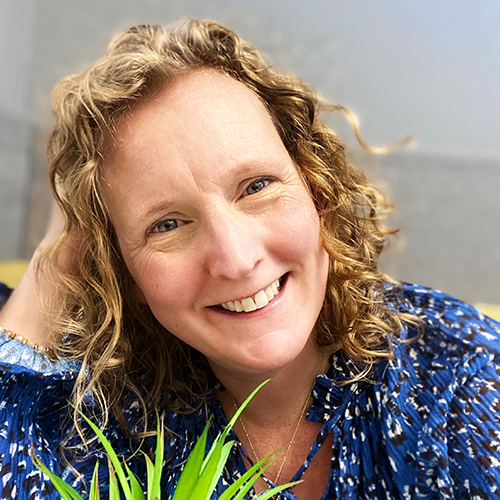

Anna Le Grange is an International Board Certified Lactation Consultant, Registered Pediatric Nurse, Mindfulness teacher and Author. She has worked with new families for over 20 years in a variety of clinical roles. Anna brings her passion for psychology, neuroscience and mindfulness into her lactation support work and facilitates other professionals to incorporate emotional well-being tools into their own lactation practice. Mother to 3 children, Anna breastfed her 3rd child following breast reduction surgery and experienced first-hand, the emotional challenges that so often relate to infant feeding complexities. She used her personal experiences alongside mindfulness and lactation knowledge, to create a toolbox of techniques for breastfeeding families, which she includes in her courses and book, The Mindful Breastfeeding Book. Anna believes whole-heartedly in prioritizing calm and connection within our breastfeeding support practices, both for our clients and ourselves. Anna is currently studying for a MSc in Positive Psychology at Buckingham New University and has spoken at various events including the Gold Lactation, ILactation Conference and Nurturing The Future.
Topic: Being Mindful: Case Studies of Mindfulness Tools in Clinical Lactation Practice - [View Abstract]
Topic: Breast/Chestfeeding After Breast Reduction - [View Abstract]
Topic: Working With Anxious Parents and Fussy Babies - [View Abstract]
With breast surgery becoming more common, it's important for professionals to understand how it can affect lactation and the experience of breastfeeding or chestfeeding parents. Both an IBCLC and Mum who breastfed her daughter after having breast reduction surgery, Anna Le Grange talks through the implication of breast reduction surgery on lactation, covering both the physiological and psychological challenges that parents face. As well as sharing the experiences of those who have had breastfed after surgery, Anna introduces practical steps that supporters and professionals can take to help their clients define and strive for their breastfeeding or chestfeeding goals in a gentle and realistic way.


Meg is the mother of three breastfed boys and lives with her husband and children in QLD, Australia. She is an International Board Certified Lactation Consultant (IBCLC) in private practice and works with parents to help them reach their breastfeeding goals. She has a degree in psychology and her prior work was is in counselling and sexual health. She was a La Leche League Leader (breastfeeding counsellor) for seven years before becoming an IBCLC. Meg is the author of two books including, "Boobin' All Day...Boobin' All Night. A Gentle Approach To Sleep For Breastfeeding Families". She has published articles in numerous parenting magazines and websites. She was also filmed for a short documentary, "Lactaboobiephobia", based on one of her blog posts which was released in 2016.
Topic: Breastfeeding With A Tongue Tie. How Can We Help When A Tie Revision Is Not Possible? - [View Abstract]
Topic: Exclusively Breastfeeding Triplets-Case Studies - [View Abstract]
Topic: Social Media Backlash – Addressing Emotionally Charged Responses - [View Abstract]
Topic: What to Do When the Laid-Back Breastfeeding Position Doesn’t Work…Self Attachment, the Flipple Technique and the Koala Hold All With a “Hands Off” Approach - [View Abstract]
Breastfeeding a baby with Down syndrome can bring many challenges to both mother and baby and many women are told they will be unable to breastfeed. This presentation will give examples of women who have faced different challenges breastfeeding their babies with Down Syndrome, yet had successful breastfeeding outcomes with the right support and information. This will include case studies with specific tips and suggestions that will help the lactation professional in offering support to these families. These women have faced many challenges including; prematurity, low muscle tone, breastfeeding into toddlerhood and a toddler who did not start breastfeeding until his mother had another baby when he was 2 ½ years old! This presentation will cover the most common challenges that families face when breastfeeding a baby with this condition and the possible solutions for them.

View Details / Enroll







